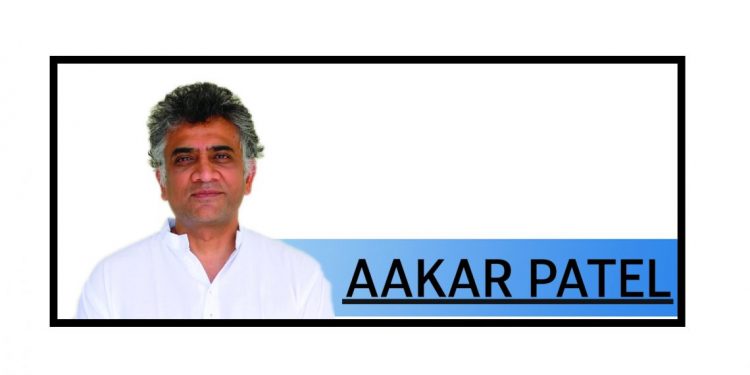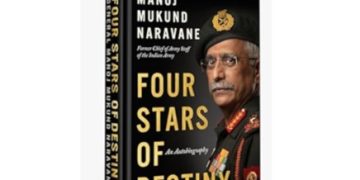The BJP won 18 of the 42 Lok Sabha seats in West Bengal. It is hard to see why it will not win the Assembly elections because it has so much more resource than the rest (more than 90 per cent of electoral bond money, which is the anonymous but legal funding by corporates to parties, according to RTI reports) and also the power of the national administration. The prime minister says he will bring real change to Bengal. Perhaps he will. The interesting thing to me is that his party has never defined what this change is.
Formed in 1951, the Jana Sangh/BJP manifestos move effortlessly back and forth from grand and formless expression like ‘national rejuvenation yagna’ directly to things like running more trains with third-class compartments as opposed to air-conditioned ones, pushing the benefits of cow manure and asking linguists to introduce technical and scientific terms based on Sanskrit to replace English.
The party’s ideologue, Deendayal Upadhyaya did not want states to exist. In his Integral Humanism lectures, he has said: “According to the first para of the Constitution, ‘India that is Bharat will be a federation of States’, i.e. Bihar Mata, Banga Mata, Punjab Mata, Kannada Mata, Tamil Mata, all put together make Bharat Mata. This is ridiculous.” He did not tell us if we removed the states what mechanism of administration would come between the Union government and the village.
In the first manifesto the party identified black-marketing, profiteering and nepotism as key problems. Over time, the Jana Sangh drops reference to these problems without saying whether they had been solved or had become less relevant to the party.
The first point on agriculture of its first manifesto calls for ‘a country-wide campaign to educate and enthuse the cultivator about the necessity of harder work for more production’. Later it is for ‘encouragement of the use of mechanical appliances in agriculture’. However, still later it says that ‘tractors will be used only to break virgin soil. Their use for normal ploughing purposes will be discouraged’ (1954). This was of course because it was trying to protect the bull and the ox from slaughter. In 1951, prohibition of cow slaughter was explained as something needed ‘to make the cow an economic unit of agricultural life’. In 1954, the text was more religious and called cow protection a ‘pious duty’.
In 1954, and again in 1971, the Jana Sangh resolved to limit the maximum income of all Indian citizens to `2,000 per month and the minimum to `100, maintaining a 20:1 ratio. It would continue working on reducing this gap till it reached 10:1 which was the ideal gap and all Indians could only have incomes inside this range based on their position. Additional income earned by individuals over this limit would be taken by the government for development. The party would also limit the size of residential houses in cities and not allow plots of more than 1000 square yards.
In 1954 the party said it would repeal the first amendment to the Constitution that curbed freedom of speech by imposing ‘reasonable restrictions’. This amendment essentially took away freedom of expression because the list of what is seen as a reasonable restriction was far too wide and broad. The Jana Sangh sensed that it was not something that could be allowed to go unchallenged. However, after 1954, this demand that the first amendment be repealed and freedom of speech, association and assembly be restored to Indians disappeared from the Jana Sangh manifestos.
Interestingly, the Jana Sangh said it would also repeal preventive detention laws which it said were absolutely in contradiction to individual liberty. This promise was made repeatedly in the 1950s. In time, the Sangh and BJP became the most enthusiastic champions of preventive detention and laws like UAPA.
Even though the idols were smuggled into the mosque on the night of 22-23 December 1949, a few months before the Jana Sangh was formed, there was no reference to Ayodhya or a Ram temple there in any of the Jana Sangh manifestos from 1951 to 1980.
Its idea of defence policy came through such demands as compulsory military training for all boys and girls, removal of licences for possessing muzzle-loading guns (an eighteenth century weapon) and expansion of the National Cadet Corps.
Interestingly, like Atmanirbhar Bharat, Jana Sangh’s swadeshi meant giving subsidies to local industries and also tariff protection. Import of consumer goods and luxury goods would be discouraged. Labour rights including strikes and lock-outs would be discouraged.
In 1957, the party announced it would introduce ‘revolutionary changes’ to the economic order, which ‘will be in keeping with Bharatiya values of life’. However, these were not elaborated on nor was this theme of revolutionary change picked up again in any future manifesto. Culturally, the party stood firmly against alcohol and sought nationwide prohibition. And it wanted English to be abolished and replaced in all spheres by local languages and especially, Hindi.
There is no comment whether positive or negative on the Constitution, which was adopted months before the first Jana Sangh manifesto, or even about the ideals it represents. Ambedkar had proposed modest changes to Hindu personal law, especially on the question of inheritance for women. He identified the two dominant forms of traditional inheritance law and modified one of them to make inheritance fairer for women. In its 1951 manifesto the Jana Sangh opposed this reform.
While it signals anti-Muslim intent, the Jana Sangh did not have the transparency of the Bharatiya Janata Party and its open dislike of Muslims. The Jana Sangh was unable to express its majoritarianism as clearly and in as full-throated a fashion as the BJP was later able to. This was because it lacked a specific programme on the back of which to mobilise anti-Muslim sentiment, such as the campaign against the Babri Masjid. It was not important as an issue all this time. The lack of a mass-mobilisation issue nationally meant that the Jana Sangh remained a minor political player, getting only a few seats in each election. In the last election it contested under its own name, in 1971, the Jana Sangh won 22 seats and 7 per cent of the vote, making it only the fourth largest party. It was only under Advani and then especially under Modi, that the BJP became the mass-based electoral force it has become, from the cadre-based party that was the Jana Sangh. It is remarkable that this should have been achieved in the absence of a coherent, consistent ideology and even a definition of what parivartan it stood for and would bring.






































